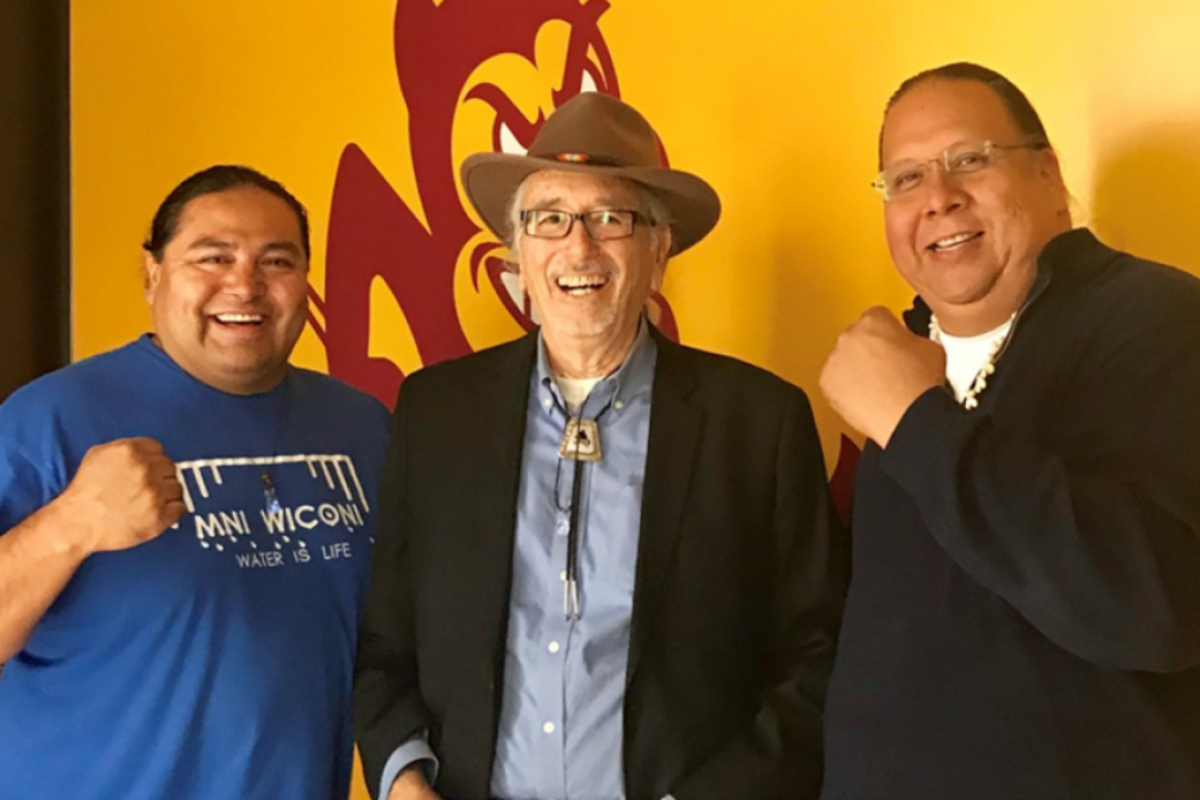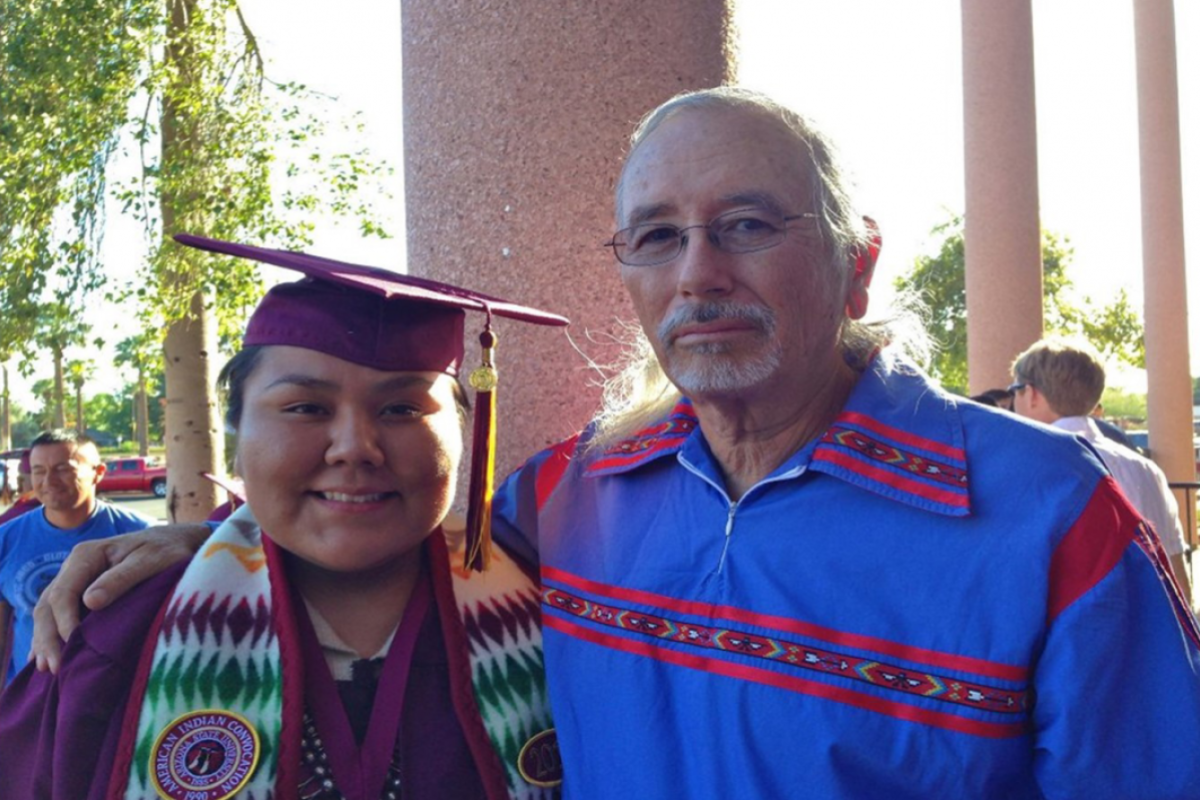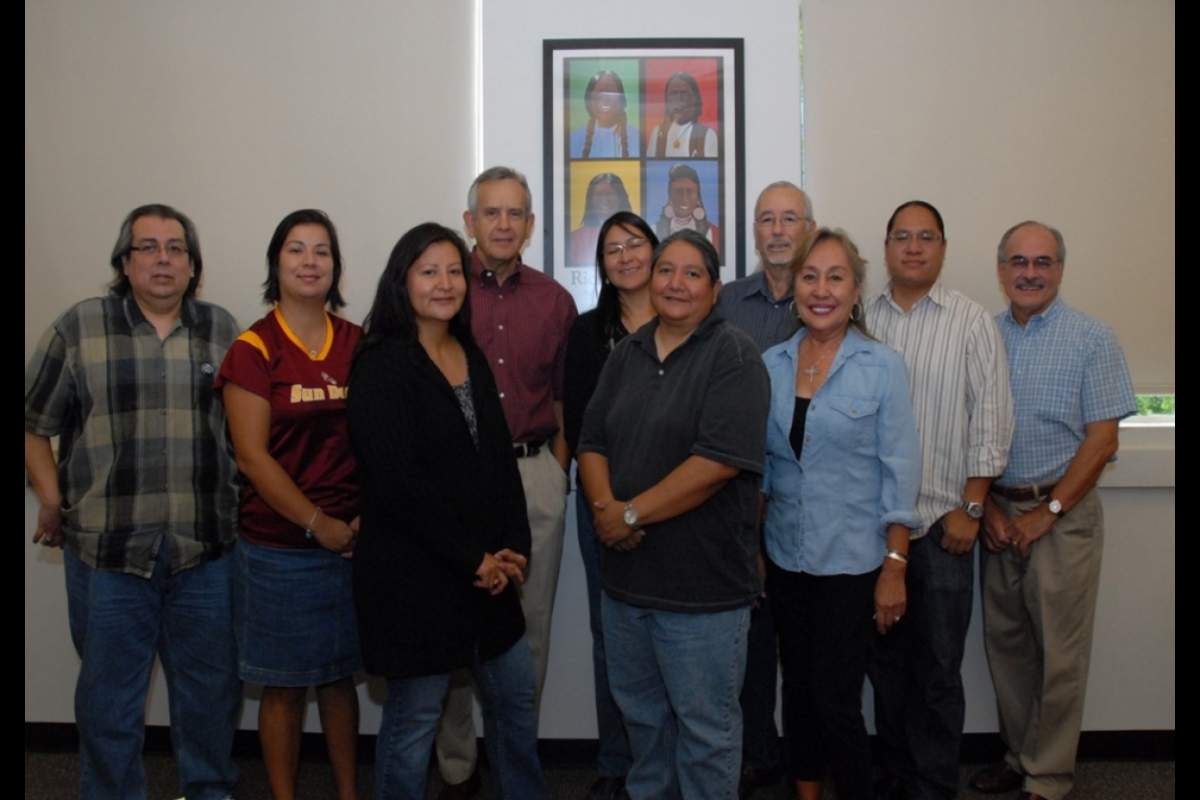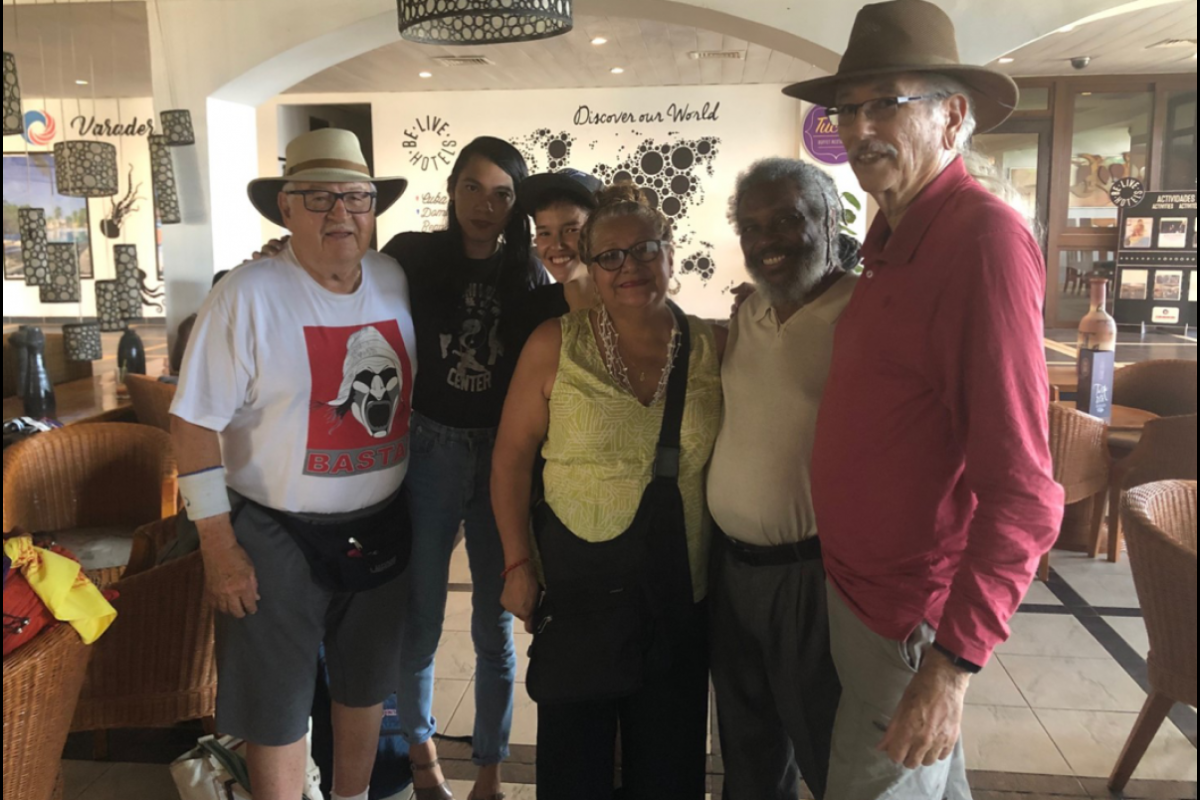James Riding In retires after 30 years of advocating for Native communities

In May, James Riding In retired from his position as interim director and associate professor of ASU's American Indian Studies program after more than 30 years with the university.
When James Riding In first came to Arizona State University as a lecturer in fall 1990, Native American scholars around the country were leading a movement for change and empowerment for Native populations in higher education. Since then Riding In has been at the forefront of that movement at ASU, where he co-founded the school’s American Indian Studies program, mentored Native students and researched American Indian history.
“From past to present times, we American Indians have remained deeply entrenched under a system of infamous colonial control marred by serial acts of ethnocide, genocide, forced removals, boarding schools, political oppression and human rights violations, to name a few,” Riding In said. “I entered the scene when times were very slowly changing largely for the better … I hungered to be part of this important movement so I could become a warrior in the fight to protect and defend Indian sovereignty, homelands, sacred places, cultures, human rights and dignity.”
In May, Riding In retired from his position as interim director and associate professor of the American Indian Studies program, where he leaves behind a remarkable legacy.
“Dr. Riding In has been an esteemed member of the faculty for over 30 years. He has been a popular professor, known for his lively lectures, stories of the early years of American Indian activism and innovative teaching style,” said Stephanie Fitzgerald, associate professor and director of the American Indian Studies program. “Dr. Riding In was instrumental in building the American Indian Studies program into the robust program we know today. We are indebted to his vision and commitment to American Indian Studies.”
In the early 1990s, Riding In and fellow faculty members Carol Lujan and Manuel Pino began conceptualizing and implementing an American Indian justice studies certificate program in what was then the School of Justice Studies. The success of the certificate program encouraged them to push for a standalone degree-granting program in American Indian studies.
In 2001, their proposal for an American Indian Studies program was approved by the Arizona Board of Regents. Over the years the program and the faculty has continued to grow in size, including the addition of a master’s degree. Many of the 179 undergraduate and 19 graduate students who have earned degrees through the program have gone on to establish successful careers in government, business, law and education.
Although Riding In and his colleagues were initially met with some challenges and pushback along the way, he said it taught him to remain persistent in the face of opposition.
“When we first proposed the idea of a standalone American Indian studies program to the upper ASU administration in the early 1990s, we were met with stonewalling and resistance,” he said. “Refusing to accept no for an answer, we worked diligently to reach that goal. The results, I must say, have been well worth the delays, barriers and frustrations we experienced along the way.”
As a citizen of the Pawnee Nation, Riding In has dedicated his life and work to advocating for Native communities. For years he worked in repatriation, where he would write reports and engage in consultations leading to the repatriation and reburial of thousands of ancestral human remains and funerary objects stolen by museums, universities, government agencies, state historical societies and other grave looters. He also served as an expert witness in cases involving hair, offensive sports mascots and team names, and sacred places protection.
He has published dozens of journal articles and book chapters about a variety of topics including repatriation, Pawnee history and culture, and racist stereotypes. He previously served as the editor of Wicazo Sa Review: A Journal of Native American Studies, helping many up-and-coming Native scholars to publish their research. He also co-edited “Native Historians Write Back: Decolonizing American Indian History,” with Susan A. Miller, a book that examines crucial events in their own nations’ histories. He has shared his research at both national and international conferences.
He currently serves as a trustee on the Pawnee Nation College Board of Trustees on the Pawnee Reservation in Oklahoma.
Riding In said it has been most rewarding to work with and learn from his students.
“For me, engaging in service pertaining to American Indian issues has fulfilled my dreams and aspirations of being able to take meaningful measures that would not only benefit our people but U.S. society as well,” he said. “Sharing my knowledge with students has been a blessing and a reciprocal experience learning from them. Giving back is a powerful concept that I took fully to heart for the sake of Indian people and my personal decolonization journey.”
In his retirement, he hopes to remain as active as possible while taking time to enjoy some of his hobbies.
“I have several book projects to complete. When called upon, I will provide service to organizations and Indian nations,” he said. “With my wife, Ida, I also plan to pursue my passions for fishing, camping, powwow dancing and golf. At some point, we may move back to my Oklahoma homeland.”
More Arts, humanities and education

ASU professor's project helps students learn complex topics
One of Arizona State University’s top professors is using her signature research project to improve how college students learn…

Award-winning playwright shares her scriptwriting process with ASU students
Actions speak louder than words. That’s why award-winning playwright Y York is workshopping her latest play, "Becoming…

Exceeding great expectations in downtown Mesa
Anyone visiting downtown Mesa over the past couple of years has a lot to rave about: The bevy of restaurants, unique local shops…





